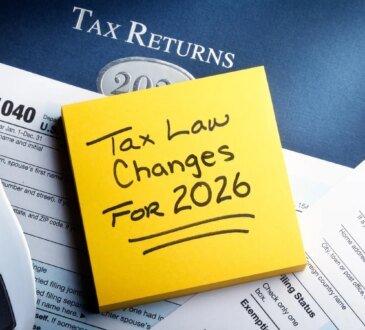WASHINGTON — Gov. Tim Walz vigorously leveraged federal “green” tax credits — for electric cars, solar panels and other clean energy technologies and projects — that are now on the chopping block as Congress moves forward on President Donald Trump’s game-changing budget.
The One Big Beautiful Bill Act that would cut social programs, extend Trump’s first-term tax breaks and raise the nation’s debt ceiling, would phase out former President Joe Biden’s ambitious plans to combat greenhouse gases — and hopefully make energy more affordable — by providing tax incentives to individuals and industry.
The proposal, approved by the U.S. House earlier this year, will likely be revised by the U.S. Senate. But when it comes to corporate efforts to invest in clean technologies, the bill has already had a chilling effect.
Canadian company Heliene, a maker of panels and other components of solar energy systems, said it’s holding off on its decision to build a new plant in Minnesota until the fate of the tax credits is clear.
Heliene CEO Martin Pochtaruk told MinnPost that a main concern is a power generation tax credit that benefits company clients that use the sun to generate electricity.
As it stands, the massive budget bill in the House is what Bloomberg called a “nightmare scenario for U.S. clean energy advocates.”
Under the legislation, wind, solar, geothermal and other emission-neutral projects would need to begin construction within 60 days of the bill’s final passage — or start operations within two years — to receive the credits before they expire, mostly in 2028.
Currently, those credits could lower the cost of a project by 30% and were available for zero-emission projects until the early 2030s.
However, Harry Godfrey, managing director at Advanced Energy United, a clean energy business association, said a “poison pill’ was inserted into the program in the form of the new 60-day deadline.
“The bill was problematic to begin with,” Godfrey said. “But this was a meat cleaver.”
In addition, under the bill, any clean energy company that uses Chinese imports to build a facility or generate energy would be barred from receiving federal money. And the $7,500 tax break available to buyers of certain electric vehicles would be eliminated by the end of next year.
To add insult to injury, the legislation would also impose a $250 annual fee on owners of electric vehicles to compensate for lost revenue from gasoline taxes.
The bill would also phase out tax credits for home energy efficiency improvements and residential clean energy installations like solar panels.
“The clean energy transition is happening,” said Sen. Tina Smith, D-Minn., a champion of the clean energy provisions. “The only question is if America will lead or follow, and I think we should lead.”
She called “recklessly” ending the incentives businesses are counting on to build “cheaper, cleaner energy” would force the United States to fall behind the rest of the world.
“We’re already seeing that these proposed changes are bad for business here in Minnesota,” Smith said. “Heliene paused construction of their solar manufacturing facility because of the cuts Republicans are pushing, and countless other projects are in limbo.”
‘Green New Scam’
Some of the clean energy tax breaks have existed for years and were implemented during the Carter, Bush and Obama administrations. But Biden’s Inflation Reduction Act expanded and extended them and added a few new ones to combat greenhouse gas emissions.
That effort was championed by Walz, who signed a law requiring utilities to provide 100% percent clean electricity in the state by 2040.
But Trump has waged war on the Inflation Reduction Act, calling it a “Green New Scam” and a waste of money and vowed to overturn most of its provision.
Still, the IRA’s tax credits have helped ramp up corporate investment in clean energy in Minnesota.
For instance, they helped Xcel Energy build a huge solar project near its Sherco coal plant site in Becker.
“Energy production tax credits provide numerous benefits to our customers and communities,” said Xcel Energy spokesman Kevin Coss. “We pass 100% of the savings to customers in the form of lower electricity rates, helping keep bills low.”
Coss also said Xcel uses the federal tax credits on projects that create jobs, raise local tax revenue and drive economic development, an argument echoed by clean energy advocates.
Another project attracted to the state by the promise of federal money is a “green” hydrogen production plant in Fridley. Green hydrogen is generated through the electrolysis of water using renewable energy sources like solar or wind power.
According to clean energy advocate Evergreen Action, Minnesota has gained more than $1 billion in new clean energy investments and nearly 1,800 new jobs since the IRA was approved in August of 2022.
“The governor has made Minnesota a leader in clean technology and renewable energy by supporting electric vehicles and putting the state on a path toward 100% clean energy by 2040,” said Claire Lancaster, the governor’s spokeswoman. “But Minnesota stands to lose billions in federal funding that lowers energy costs by helping Minnesotans move toward more energy-efficient homes, cars, and electricity.
Lancaster also said that besides eliminating thousands of jobs, the legislation would leave Minnesotans more vulnerable to pollution, extreme weather events and the health and safety risks that they bring.
‘On track to raise energy bills’
The Senate is expected to make changes in the House-passed bill and clean energy boosters and the clean technology and energy industries are turning their full attention on the chamber.
Coss, of Xcel Energy, said “we are working closely with our industry partners, trade associations, and other stakeholders to ensure federal policymakers are made aware of the important benefits of these tax policies for their constituents.”
Green tax credit supporters say the end to innovation in the green energy industry will result in increased energy costs for homeowners, small businesses and industry, a 10% increase over the next few years as demand for energy grows.
“We’re on track to raise people’s energy bills,” said Evergreen Energy spokesman Seth Nelson.
Lobbying to save the tax credits has focused on four GOP senators who have sizable clean energy investments in their states because getting the bill through the Senate won’t be easy.
“I do think there are some persuadable senators,” Nelson said.
Senate Majority Leader John Thune, R-S.D., cannot lose more than three GOP votes because no Democrat is expected to support it.
And four Republican senators have expressed concerns over the elimination of the credits.
Sens. Lisa Murkowski of Alaska, Thom Tillis of North Carolina, John Curtis of Utah and Jerry Moran of Kansas sent Thune a letter last month warning against the obliteration of the IRA — and especially the green tax credits.
“Our country is blessed with abundant natural resources and an entrepreneurial spirit that uniquely positions us to power both our economy and the world — enabling U.S. leadership in innovation, energy production, and manufacturing alike,” the senators wrote. “Many of the investments that make this possible are enabled by current tax provisions, including some from the Inflation Reduction Act.”
At a press conference at a clean energy company in Utah this week, Curtis said he would “make sure that we’re taking into account our energy future.”
Other GOP senators are being targeted too. Several analyses show that much of the tax credits are going to states where majorities voted for Trump.
“This will hit hardest in states that Trump won,” Nelson said.




